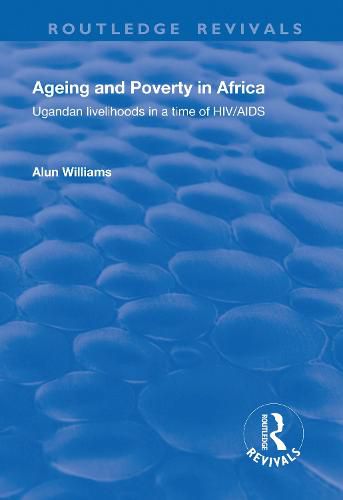Readings Newsletter
Become a Readings Member to make your shopping experience even easier.
Sign in or sign up for free!
You’re not far away from qualifying for FREE standard shipping within Australia
You’ve qualified for FREE standard shipping within Australia
The cart is loading…






This title was first published in 2003. The rapid demographic aging of populations worldwide, and most dramatically in developing countries, will result in unprecedented increases in the absolute and relative numbers of the aged in these countries. Whilst developed economies already have the basic infrastructure in place through which to support their ageing populations, developing nations frequently do not, and it should not be assumed that their best course of action is to attempt to duplicate the supportive infrastructures of developed countries. In developing nations these may be culturally inappropriate, geographically inaccessible, economically or politically unsustainable, or all of these. Effective and sustainable support services must be designed with reference to the circumstances of the client group, and it is increasingly evident that knowledge of the lives of the aged in developing countries is currently very limited. This book aims to inform the reader on the livelihoods of elders in developing countries and to stimulate a discussion of appropriate methods of supporting them in maintaining their quality of life during and beyond the coming decades of demographic change. It does so through reporting the lives and livelihoods of the aged population of Kikole (a pseudonym), a highly impoverished village in Uganda. Individual livelihoods are explored from a lifecourse perspective, with present day quality of life being shown often to be the result of earlier enforced changes in circumstances arising in economic, social or cultural marginalization, political or physical insecurity, or macro-economic change, rather than in the physical or mental changes that may accompany advancing age.
$9.00 standard shipping within Australia
FREE standard shipping within Australia for orders over $100.00
Express & International shipping calculated at checkout
This title was first published in 2003. The rapid demographic aging of populations worldwide, and most dramatically in developing countries, will result in unprecedented increases in the absolute and relative numbers of the aged in these countries. Whilst developed economies already have the basic infrastructure in place through which to support their ageing populations, developing nations frequently do not, and it should not be assumed that their best course of action is to attempt to duplicate the supportive infrastructures of developed countries. In developing nations these may be culturally inappropriate, geographically inaccessible, economically or politically unsustainable, or all of these. Effective and sustainable support services must be designed with reference to the circumstances of the client group, and it is increasingly evident that knowledge of the lives of the aged in developing countries is currently very limited. This book aims to inform the reader on the livelihoods of elders in developing countries and to stimulate a discussion of appropriate methods of supporting them in maintaining their quality of life during and beyond the coming decades of demographic change. It does so through reporting the lives and livelihoods of the aged population of Kikole (a pseudonym), a highly impoverished village in Uganda. Individual livelihoods are explored from a lifecourse perspective, with present day quality of life being shown often to be the result of earlier enforced changes in circumstances arising in economic, social or cultural marginalization, political or physical insecurity, or macro-economic change, rather than in the physical or mental changes that may accompany advancing age.